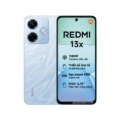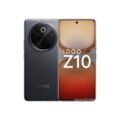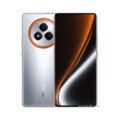- Latest Product
- Product
- Mobiles
- Xiaomi Redmi Note 14S
Xiaomi New Device
-->Xiaomi Redmi Note 14S Full Details
Basic info
| Brand | Xiaomi |
| Model | Redmi Note 14S |
| Category | Mobile |
| Status | Released |
| Launch Announcement | 2025, March 14 |
| Launch Date | 2025, March 14 |
Network Connection
| Network Type | GSM / HSPA / LTE |
| 2G Network | |
| 3G Network | |
| 3G Bands | HSDPA 850 / 900 / 1700(AWS) / 1900 / 2100 |
| 4G Network | |
| 4G Bands |
LTE |
| 5G Network | |
| GPRS GPRS (General Packet Radio Service) is a packet oriented mobile data service on the 2G and 3G cellular communication system's global system for mobile communications (GSM), Generally, GPRS is used for the purpose of wireless data transfer, such as sharing pictures and videos or browsing the Internet via a mobile phone connection. |
Body
| Dimensions | 161.1 x 75 x 8 mm (6.34 x 2.95 x 0.31 in) |
| Weight | 179 g (6.31 oz) |
| SIM Card | Nano-SIM + Nano-SIM |
| Colors | Midnight Black, Aurora Purple, Ocean Blue |
| Build | Glass front (Gorilla Glass 5), plastic frame, plastic back |
| Protection | Corning Gorilla Glass 5 |
| Features | IP64 dust tight and water resistant (water splashes) |
Display
| Display Type Display Technology => A number of display technologies and types used in mobile phones => TFT (Thin Film Transistor), IPS (In-Place Switching), OLED (Organic Light Emitting Diode), AMOLED (Active-Matrix Organic Light-Emitting Diode), Super AMOLED (an even advanced version of AMOLED), Resistive Touchscreen (Resistive touchscreens contain two layer of conductive material with a very small gap between them which acts as a resistance), Capacitive Touchsceen (Capacitive touchscreen technology consists of a layer of glass coated with a transparent conductor) | 6.67 inches |
| Size | AMOLED |
| Ratio | 20:9 ratio |
| Resolution | 1080 x 2400 pixels |
| Pixel Density Pixel Density (PPI) is refers to the concentration of pixels on a particular display, measured in pixels per inch (ppi). Pixel density is calculated by dividing the diagonal pixel resolution of a display by its diagonal size, higher pixel density better display quality. | 395 ppi |
| Multitouch | |
| Display Protection | Corning Gorilla Glass 5 |
| Refresh Rate | 120Hz |
| Features | 1B colors, 500 nits (typ), 1000 nits (HBM), 1300 nits (peak) |
Hardware
| CPU CPU (Central Processing Unit) mostly known as processors, CPU processes instructions in order to carry out certain functions that make your device operate properly. Processors are often described as the brain of computers, smartphones and tablets, Smartphones and tablets rely on processors to carry out their every task, Processors are an incredibly important factor in selecting any type of computing device, including your smartphone. | Octa-core (2x2.2 GHz Cortex-A76 & 6x2.0 GHz Cortex-A55) |
| GPU GPU (Graphics Processing Unit) is a single-chip processor designed to rapidly manipulate and alter memory to accelerate the creation of images in a frame buffer intended for output to a display, This includes things such as lighting effects, object transformations, and 3D motion. | Mali-G57 MC2 |
| Chipset Chipset is a group of integrated circuits designed to perform one or a more dedicated functions, often with real time computing constraints, Popular smartphones are equipped with more advanced embedded chipsets that can do many different tasks depending on their programming. | Mediatek Helio G99 Ultra |
| RAM | 8GB |
| Internal Storage Internal Storage is a data storage space (flash memory) mostly used in smartphones, tablets and other electronic devices where operating system, apps, music, photos, videos, files and other user data Is stored. | 256GB |
| Memory Slot | NO |
| Version | 256GB 8GB RAM |
| Storage Type | UFS 2.2 |
Software
| Operating System OS => Every computer system run on a base software called Operating System (OS). Operating System controls all basic operations of the computer (such as smartphone, PDAs, tablet computers and other handheld devices). The Operating System allows the user to install and run third party applications (apps), apps are used to add new functionality to the device. | Android |
| Version | 15 |
| User Interface UI or user interface of a device is the look and feel of the on-screen menu system. How it works, its color scheme, how it responds to button presses, all of these things are part of the user interface. | HyperOS |
Main Camera
| camera |
200 MP, f/1.7, 23mm (wide), 1/1.4", 0.56µm, multi-directional PDAF, OIS 8 MP, f/2.2, 15mm, 120˚ (ultrawide), 1/4.4", 1.0µm 2 MP, f/2.4, (macro) |
| Features | LED flash, HDR, panorama |
| Video | 1080p@30/60fps |
Selfie Camera
| camera | 16 MP, f/2.4, (wide), 1/3.0", 1.0µm |
| Features | HDR |
| Video | 1080p@30/60fps |
Multimedia
| Loudspeaker | Yes, with dual speakers |
| 3.5mm Jack |
Connectivity
| Wi-fi Wi-Fi is a popular wireless networking technology using radio waves to provide high-speed network connections that allows devices to communicate without cords or cables, Wi-Fi is increasingly becoming the preferred mode of internet connectivity all over the world. | Wi-Fi 802.11 a/b/g/n/ac, dual-band |
| Bluetooth Bluetooth is a wireless communications technology for exchanging data between mobile phones, headsets, computers and other network devices over short distances without wires, Bluetooth technology was primarily designed to support simple wireless networking of personal consumer devices. | 5.2, A2DP, LE |
| Wi-fi Hotspot | |
| FM Radio | |
| USB | USB Type-C 2.0, OTG |
| OTG | |
| GPS | |
| NFC NFC (Near field communication) is a set of standards for smartphones and similar devices to establish peer-to-peer radio communications with each other by touching them together or bringing them into proximity, usually no more than a few inches. |
Security
| Fingerprint | Fingerprint (under display, optical) |
| Sensors Sensors are electronic components that detects and responds to some type of input from the physical environment. The specific input could be light, heat, motion, moisture, pressure and location, The output is generally a signal that is converted to use in computing systems, a location sensor, such as a GPS receiver is able to detect current location of your electronic device. | accelerometer, gyro, compass |
Power
| Battery Type | Non-removable Li-Po |
| Battery Capacity | 5000 mAh |
| Battery Charging | 67W wired, 50% in 16 min, 100% in 46 min |
| Fast charging | |
| Wireless Charging |
Price
| United States Price in United States. price us | 270 $ (about) |
Xiaomi Redmi Note 14S quick review
The Xiaomi Redmi Note 14S is a mid-range smartphone that combines performance, camera capabilities, and battery life. It was released on March 14, 2025.
Display and Design
Sharp and colorful images are displayed on the device’s 6.67-inch AMOLED display, which has a resolution of 1080 x 2400 pixels. Its 120Hz refresh rate guarantees responsiveness and fluid scrolling. Corning Gorilla Glass 5 protects the screen, increasing its longevity.
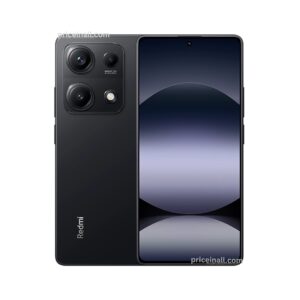
Performance
The MediaTek Helio G99 Ultra chipset, which houses an octa-core processor with two Cortex-A76 cores clocked at 2.2GHz and six Cortex-A55 cores at 2.0GHz, powers the Redmi Note 14S. This configuration, when paired with 8GB of RAM, guarantees effective multitasking and performance for everyday tasks.
The Camera System
Its 200MP primary camera, which is intended to take incredibly detailed pictures, is a noteworthy feature. Additionally, the camera setup has a 2MP macro sensor and an 8MP ultra-wide lens, providing versatility for a range of shooting situations. A 16MP front-facing camera is included for taking selfies.

Charging and the Battery
The smartphone has a 5,000mAh battery that can be charged at 67W fast rate. Quick recharging times and prolonged usage are guaranteed by this combination.
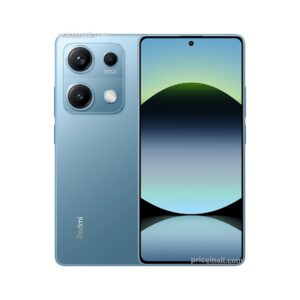
Storage and Software
The gadget, which runs Xiaomi’s HyperOS on top of Android 15, has a cutting-edge and user-friendly interface. With 256GB of internal storage, there is more than enough room for files, media, and apps.
Accessibility
There are three color options for the Redmi Note 14S: Ocean Blue, Midnight Black, and Aurora Purple. It was first introduced in Central and Eastern Europe, but in the upcoming months, it should expand to other markets.
In conclusion
With its high-resolution camera, strong performance, and quick charging, the Xiaomi Redmi Note 14S presents an alluring package for anyone looking for a competent mid-range smartphone.
To see Xiaomi 15 ultra click here
To see the Galaxy S25 ultra click here.
To see the Samsung Galaxy S25 Plus click here.
To see Samsung Galaxy S25 Click here.




